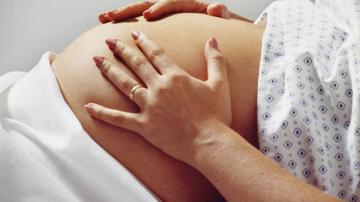
With coronavirus sweeping the globe thousands of people have been ordered to stay in their homes with not much to do, leading to many joking the world could expect a baby boom in the coming months.
However new research suggests the opposite could be true.
A survey of almost 1500 heterosexual people in Italy - one of the worst-hit countries - suggests the pandemic has actually put some people off having children entirely.
Of 298 people who were planning on having a baby, more than a third now say they have put those plans on hold.
The reasoning behind the halt in starting a family ranged from concerns over financial stability to uncertainty around the effects of COVID-19 on a pregnancy.
The survey, carried out in the third week of the lockdown in Italy, surveyed 944 women and 538 men aged between 18-46 years who had been in a stable heterosexual relationship for at least twelve months. Study author, Dr Elisabetta Micelli from the Assisted Reproduction Technologies Center, suggested that mental wellbeing during lockdown had an impact on the desire to have a baby.
"The majority of participants gave significantly higher total scores to their mental wellbeing before the pandemic, while lowest scores were reported in the answers referred to the COVID-19 period," she said in a statement.
More than 80 percent of the people surveyed said they did not plan on conceiving during the pandemic, however 11 percent said the outbreak had made them want a child more.
This wish was mostly expressed by women who cited a need for positivity and a will for change.
The researchers behind the study acknowledged the future is unclear saying "it is unknown whether these findings will result in a substantial modification of birth rate in the near future".



